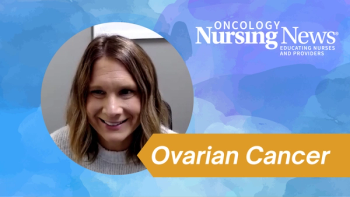
Innovative Symptom Monitoring in CML: Leveraging Technology and Patient-Reported Outcomes
Panelists discuss how innovative approaches to symptom monitoring incorporate multifaceted technology and team-based strategies, including electronic patient-reported outcome tools integrated with electronic medical record (EMR) systems, dedicated nurse coordinators for regular check-ins, specialized pharmacy services for medication education, and a comprehensive team approach involving various health care professionals to maintain consistent communication, ensure proper follow-up, and address potential barriers to adherence ranging from adverse effects to social and financial issues.
Episodes in this series

Innovative Approaches to CML Symptom Monitoring: Clinical Summary
Technology-Enhanced Monitoring Solutions
Digital Patient-Reported Outcomes
- EMR-integrated surveys: Electronic questionnaires delivered through patient portals or mobile applications
- Regular assessment schedule: Weekly symptom questionnaires to capture evolving issues
- Alert-based system: Automated notifications to clinical team when concerning changes are reported
- Structured symptom tracking: Standardized questionnaires enabling systematic monitoring over time
Multidisciplinary Monitoring Approach
Coordinated Care Team Roles
- Dedicated nurse coordinators: Scheduled proactive check-ins following tyrosine kinase inhibitor (TKI) initiation or modification
- Specialized pharmacy services: Pharmacists dedicated to oral oncology providing:
- Medication education
- Adverse effect counseling
- Additional monitoring touchpoint
- Trust-building interaction outside traditional clinical encounters
- Provider monitoring: Regular clinical assessment of both disease response and quality of life
- Mental health professionals: Support for psychological aspects of chronic disease management
- Social workers: Assistance with financial barriers and social determinants affecting adherence
Proactive Patient Engagement
- Intentional touchpoints: Scheduled interactions beyond standard appointments
- Telephone follow-ups: Brief calls to assess TKI tolerance and adverse effects
- Appointment optimization: Flexibility to accelerate visits when issues arise
- Continuous communication: Multiple channels for patients to report concerns
Implementation Considerations
Comprehensive Monitoring Focus
- Regular PCR monitoring and quality-of-life assessment
- Prevention of patient disengagement due to just taking a pill perception
- Systematic approach to following patients who miss appointments
The implementation of these innovative monitoring approaches creates multiple opportunities for intervention, enhances adherence through supportive care, and reinforces the team-based nature of successful long-term chronic myeloid leukemia (CM)L management.
Newsletter
Knowledge is power. Don’t miss the most recent breakthroughs in cancer care.



































